Recalibrating Pragmaticism
Interview by Richard Marshall.
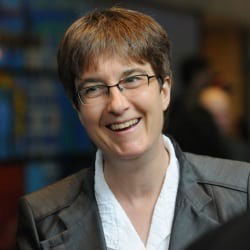
'We’re presently in a situation in which many people seem to not care about evidence, facts, and truth. That's a dangerous thing, in my view. Peirce said that a belief that is put in place by a method ‘extraneous to the facts’ isn’t deserving of the label ‘belief’, as it doesn’t aim at the truth.'
'Ramsey saw that if a belief is in part a disposition to behave, then we can measure how strong a person's belief is by seeing how that person acts in various circumstances. And we can evaluate beliefs in terms of whether they lead us to successful action. Peirce had the second thought, but not the first one.'
'Hardly ‘strong-armed analytic philosophy’! I guess I don’t really know what you mean by that. Indeed, I'm not sure we still have a grip on what 'analytic philosophy' means. In the mid 1900s, it did have a distinct meaning. We were to analyze a proposition down to its constituent simples. No pragmatist was into that. But not many philosophers these days are into that. Yet much of philosophy is played in the analytic key. What does that mean these days, other than a commitment to rigorous argument?'
'Roughly: We can't get at objects as they are independently of the way we perceive and conceive of them. That doesn't mean that there are no objects 'out there'. Peirce is quite clear that we have to assume that there are, otherwise we can't make sense of inquiring into them. '
Cheryl Misakis a new Pragmatist, always working to ensure we get the best perspective on Pragmatist philosophy and we take in the views from Cambridge, Vienna, even Oxford as well as America in order to do so. Here she discusses the central importance of Peirce, Peircean pragmatism's link to empiricism and Kant, critical commonsensim’ and ‘resolute fallibilism', Peirce's views about belief, the pragmatist tradition, pragmatism and metaphysics, whether pragmatism muddles ontology with epistemology, morality, politics and pragmatism, why Habermas doesn't help, non-American pragmatism, Frank Ramsey's pragmatist attacks on Wittgenstein's Tractatusand his importance for pragmatism and the pragmatist view of truth.
3:AM:What made you become a philosopher?
Cheryl Misak:I simply fell for it at first sight. I grew up in a small prairie city with mediocre schooling, and when I entered the university in my hometown, I didn't even know what 'philosophy' meant. I wanted only Tuesday-Thursday classes so I could play tennis tournaments over long weekends, and this mystery course—Philosophy 100—was the only thing that fit in the final slot of my schedule. So I took it, thinking that it might be something like psychology. On the very first day, it was clear to me that I loved it. Since this was 1980, with the job market very rough for philosophers, I spent the next three years agonizing whether I was going to take the risk of going to graduate school and into this low-prospects career. I'm certainly glad I took that chance.
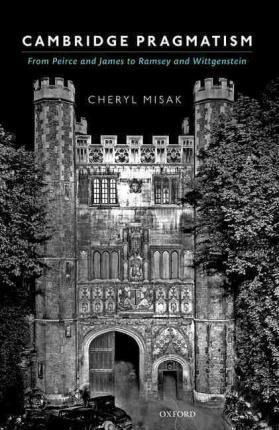
3:AM: You’re an expert on Pragmatism and are clear that you’re an ‘objectivist’ in the tradition of Peirce and CI Lewis as opposed to a a different pragmatist tradition including James, FCS Schiller and Rorty and you also want to reconfigure Pragmatism so that it isn’t seen as an exclusively American tradition by including the likes of Wittgenstein and Ramsey which places Vienna and Cambridge firmly in its domain of influence as well. (And I think via Austin, Dummett, McDowell, Ryle, Strawson and Wiggins you say that Oxford too falls under its influence!) So let’s start with Peirce – why do you find his approach more important and appealing than that of James when you consider the philosophical importance of pragmatism?
CM: Let me say straightaway that James sometimes put forward a position that is as compelling as Peirce's. His 'The Moral Philosopher and the Moral Life' is especially good. But sometimes he put forward a position that would inspire Rorty. In those moods, he said that experiences under the effects of opium or experiences with respect to the quality of one's life can be perfectly good evidence for matters of about what exists (such as God). But that’s a problematic view. If there’s no fact of the matter—nothing that goes beyond this kind of radically subjective experience—then we're left without anything to say to those who have beliefs that go against the evidence or are untethered from the evidence. We're also left without any defense against the 'might is right' view. We’re presently in a situation in which many people seem to not care about evidence, facts, and truth. That's a dangerous thing, in my view. Peirce said that a belief that is put in place by a method ‘extraneous to the facts’ isn’t deserving of the label ‘belief’, as it doesn’t aim at the truth.
3:AM: How does Peirce ensure that his approach to meaning , truth and knowledge excludes belief in God, transubstantiation and so on, unlike James’s approach, and yet is still pragmatist? Didn’t he say at one point that there’s no difference between a hard thing and a soft thing until they’ve been tested? That seems just false to an objectivist! And not much better than someone like Rorty! And lacking the objectivity you say he thinks is still possible even within a historical situation!
CM: First, Peirce corrected himself about the diamond at the bottom of the ocean, destined never to be tested. He was embarrassed that he had suggested that there is no meaning to the idea that such a diamond is hard. His corrected version of the pragmatic maxim is that an essential part of the meaning of ‘That diamond is hard’ is ‘were it to be scratched, it would resist’.
Second, Peirce was a believer in God, more than James (who said that he actually wasn't very receptive to religious experience). So Peirce didn't want to exclude a belief in God. Indeed, he tried hard to show that there was evidence for it. But what distinguishes him from James is that Peirce saw that the evidence couldn't be a matter of the belief in God being necessary for his well-being. James dedicated the volume The Will to Believe to Peirce, and he repaid the kindness by writing to James that James's position amounted to 'Oh, I could not believe so-and-so because I should be wretched if I did'. Peirce tried, and in fact failed, to spell out some verifiable consequences for the world, if the hypothesis of God's existence is true. But I’m not sure that he saw that he failed.

3:AM: Is Peircean pragmatism and the pragmatic maxim 'we must look to the upshot of our concepts in order to rightly apprehend them’ just a sophisticated type of empiricism – or does the idea that we have to assume certain things before empirical enquiry mean Kant is still important to them, and his Scholastic Realism sets him against the nominalism of the British empiricists ?
CM: You’ve got it perfectly right. Pericean pragmatism is a sophisticated type of empiricism—one that is inflected with Kant and with realism. Peirce said of the birth of pragmatism: 'The type of our thought was decidedly British. I, alone of our number, had come upon the threshing-floor of philosophy through the doorway of Kant, and even my ideas were acquiring the English accent.' He melded a kind of British Empiricism (a dispositional account of belief and a verificationism so broad it includes mathematical and ethical experience) with Kant's idea that we need to assume some things to get belief and inquiry going: that there is a real world that we are trying to get right and that there is an answer to the question at hand. But he parted with Kant in that he thought that our need to assume such things didn’t prove them to be true. He said that he needed to assume that he had $500 in the bank, because he had written cheques for that amount, but he found that the assumption had never affected his bank balance.
3:AM: How does Peirce buckle ‘critical commonsensim’ to ‘resolute fallibilism’?
CM: Great question. The answer, in a sentence, is that he distinguishes 'absolute certainty' (which we can't have, hence the fallibilism) from 'practical certainty' (which we can have, hence the argument against skepticism. We should fully believe what we cannot in our hearts and actions doubt, abandoning the quest for absolute certainty while pursuing the aim of getting beliefs that really would stand up to all practical doubt.
3:AM: How does he develop Bain’s insights into the nature of a belief? Is one of the things he develops out of Bain the idea of ‘degrees of belief’, the sort of thing we now find in Bayesian epistemology and that was developed by Ramsey?
CM: Peirce definitely thought about degrees of belief and how they should track frequencies. But I think that he failed to put two and two together here. That is, he failed to see that his account of belief as a disposition to behave gave him a beautiful way of conceptualizing and measuring degrees of belief. It took Ramsey to make that connection. Ramsey had adopted Peirce's dispositional account of belief in the mid-1920s. He saw that the frequency theory, although good for some purposes, such as physics, couldn't offer an account of partial belief or a good account of how an individual should make decisions. He gives the example of a walker being at a cross-roads and not knowing the way. The walker needs to make a one-off assessment of the probabilities, and thinking about proportions in the long run is of no help at all. He suspects that one of the two ways is right and so he goes that way, while keeping his eyes open for someone to ask. If he sees someone half a mile away over the fields, whether he goes off his track to ask him will depend on the relative inconvenience of going out of his way or of continuing on the wrong track if it is the wrong track. It will also depend on how confident he is that he's right; and the more confident he is, the less distance he is willing to go from the road to check his partial belief.
That is, Ramsey saw that if a belief is in part a disposition to behave, then we can measure how strong a person's belief is by seeing how that person acts in various circumstances. And we can evaluate beliefs in terms of whether they lead us to successful action. Peirce had the second thought, but not the first one. Although others might have caught a glimmer of the idea, Ramsey was the first to propose a definition of probability as a subjective degree of belief and then show us how to measure belief and show how it should be aligned to the available evidence and to mathematical laws of consistency.

3:AM: James, Dewey and Rorty seem much more preoccupied with cultural critique of the role truth plays in lives than in working out a philosophical conception of truth. Is that a good way to start understanding the split within pragmaticism, one lot seems to be edging towards a post-modern relativism, the other towards strong-armed analytic philosophy – and is your preferred version of pragmatist truth deflationary?
CM: It's pretty hard to divide up the pragmatist tradition in any neat and tidy way. But here's my attempt at how to best do that. For the most part, James, Dewey and Rorty seem concerned with cultural critique of the role truth plays in our lives, whereas Peirce sees truth as the product of inquiry. But even this way of demarcating one kind of pragmatist from another doesn’t really work, because James and Dewey were also inclined to think that truth is the best that inquiry could do (Rorty in some moods too). And Peirce comes to idea that truth is the best that inquiry can because he is committed to analyzing our philosophical concepts by looking at the role they play in our lives. Hardly ‘strong-armed analytic philosophy’! I guess I don’t really know what you mean by that. Indeed, I'm not sure we still have a grip on what 'analytic philosophy' means. In the mid 1900s, it did have a distinct meaning. We were to analyze a proposition down to its constituent simples. No pragmatist was into that. But not many philosophers these days are into that. Yet much of philosophy is played in the analytic key. What does that mean these days, other than a commitment to rigorous argument?
My preferred version of the pragmatist theory of truth is most definitely not deflationary. I’m with Peirce, Hilary Putnam and Huw Price who argue that the deflated version of truth fails to capture the role that truth plays in our inquiries. A conception of truth has to go beyond the deflationist idea that to assert 'p is true' is nothing more than to assert 'p' itself. As Ramsey put it, once we have accepted that truism, all the hard work is still ahead of us. We have to analyze what it means to assert or believe p. Ramsey is usually thought to be a deflationist or a redundant theorist, but if you read a sentence or two after he registers the deflationist thought, he makes his pragmatist turn. What it is to believe that p is to be disposed to behave in certain ways.
3:AM: Peirce was also inclined towards metaphysics whilst other pragmatists are resolutely anti-metaphysics – Huw Price, for example, self-described as a non-metaphysician when I interviewed him – so for some contemporary pragmatists metaphysics seems to be something they don’t do! How is metaphysics consistent with his pragmatism?
CM: It all depends on what we mean by 'metaphysics'. In one of Peirce's most charming passages, he says that he wants nothing to do with ‘vagabond thoughts that tramp the public roads without any human habitation’. If we think we can analyze causation, probability, existence, and so on, without considering the role they play in our inquiries and languages, then we are engaged in what Peirce called the 'puny, rickety, and scrofulous science' of metaphysics. But metaphysics that does tramp the public, human, roads, is a perfectly good thing to do. I suspect that Huw would agree with this. After all, he has engaged in trying to figure out concepts such as time, but in a non-rickety way.
3:AM: Why isn’t it fair to say that Peircean pragmatics muddles ontology with epistemology? After all, he rejects a correspondence theory of truth on the grounds that it doesn’t offer an account of truth in terms of consequences for doubt, belief and perceptual disappointment etc. But surely all that matters for the truth of the statement ‘The moon is made of green cheese’ is the fact about what the moon is made of. What beliefs, attitudes and so on might follow from that seems irrelevant to the truth of the matter. Nor does it depend on my being able to find out the truth. The moon either is or isn’t green cheese and if this transcends our ability to know it so be it. Does the principle of bivalence undermine even Peirce’s approach to pragmatism?
CM: It's an open question whether pragmatism muddles ontology and epistemology or whether it rightly says that the two cannot be pulled apart. It won't surprise you that I think that good arguments can be made for the latter position. Roughly: We can't get at objects as they are independently of the way we perceive and conceive of them. That doesn't mean that there are no objects 'out there'. Peirce is quite clear that we have to assume that there are, otherwise we can't make sense of inquiring into them.
To be sure, the truth of 'The moon is made of green cheese' depends on the facts. Peirce said that if we held onto a belief even if the facts should 'remain lamentable', we couldn't use the word 'belief' to describe our mental state. A belief is something that resigns in the face of good reason and evidence against it. We have lots of reason to think that the moon isn't made of green cheese. Now that we have ways of actually checking, let's shift the example to some very far-flung space body that has already burned up. Was it made of green cheese?
Peirce can make sense of what he called such a 'buried secret' being true or false. It doesn't matter that no person will be in a position to know it. We assume that there is a correct answer to the question, because there is a correct answer generally, to the question 'is this body made of green cheese'? And we’ve got lots of reason to think that the answer to our question is ‘no, that far-flung, burnt-up body was not made of green cheese’.

3:AM: I guess in the sphere of morality and politics the issue of truth is particularly tricky for pragmatism’s non-foundationalism. But if there is no foundation then why not abandon the idea of truth here. Why insist that it’s still possible to secure anything but an arbitrary grounding? Apart from doing a critique of how morality and politics portrays themselves, what is the decisive move for a Peircean anti-Rortyan like yourself in these matters? Does Habermas’s approach help suggest a way?
CM: I would put it the other way round. The sphere of morality and politics is particularly apt for pragmatism's non-foundationalism. There is no foundation or certainty grounding any of our beliefs. So it's no surprise that there is no foundation or certainty grounding our ethical and political beliefs. Pragmatism gives us a chance of making sense of how we can be right or wrong in moral and political matters. That’s a huge advance on most other theories of truth. Those who take truth to be a correspondence between mind-independent objects and our words make it impossible to think of truth in morals and politics. And those who take there to be no truth anywhere make it impossible to think of truth in morals and politics. The Pericean, objective, kind of pragmatism I have defended says there is truth to be had, and because it isn’t correspondence with mind independent objects, perhaps it’s to be had in morals and politics as well as in science.
Habermas’s approach doesn’t help us much, although it is struggling to be on the same page. Habermas wanted some grounding, so he said that the very act of communication guarantees that the communicators buy into democratic norms, on the pain of ‘cognitive suicide’. That’s too strong, although the right answer, I think, is along those lines. The very act of disagreeing, inquiring, arguing, betrays the fact that we take ourselves to be aiming at the truth and if our inquiries disregard or denigrate the experiences of others, we can be criticized for adopting a bad way of getting to the right answer. We can be criticized in other ways as well, but the epistemic critique has some theoretical pull.
3:AM: As I said at the start, you’ve shown that pragmaticism isn’t just an American philosophy – Wittgenstein and Ramsey are included, but also some surprising people – Like Russell for instance, even though Russell attacked the non-Peircean pragmatists, in particular Schiller’s ‘The Value of Formal logic’ of 1932. So how does Russell of all people become a pragmatist – after all, if Russell counts as a pragmatist doesn’t the term become a catch-all for more or less anyone?
CM: You're completely right. Russell was mostly on the attack when it came to pragmatism. But for a short period in the late early 1920s, he was attracted to pragmatism, indeed, happy to not demur when he was called a pragmatist. He was trying to work out an account of how belief might get the world right and for a few years he thought that perhaps the pragmatists had some insights that would help him. He says in My Philosophical Development that by 1918 he had become convinced ‘that William James had been right in denying the relational character of sensations’. James (and every other pragmatist) holds that the mind’s relation to the world is not straightforward or unmediated.
It’s mediated by interpretation. As Russell put it in the 1921 The Analysis of Mind, ‘it is a mistake to regard . . . mere seeing itself as knowledge’. He was also attracted to what he called James’s ‘neutral monism’-- his idea that the mental and the physical are really two ways of describing the same phenomenon, which is itself neither wholly mental nor wholly physical. But most importantly, Russell was interested in the behaviourist position, which he rightly saw as having some features in common with pragmatism. All of these pragmatist thoughts of Russell’s are from 1918-22. So I wouldn’t say that Russell was a pragmatist. But he certainly had a pragmatist period.
3:AM: How does Wittgenstein and the Vienna Circle intersect with pragmatism
CM: I argue in a paper titled ‘The Subterranean Influence of Pragmatism on the Vienna Circle’ that Ramsey imparted his pragmatism to Wittgenstein in 1929 and when Wittgenstein was meeting with some members of the Vienna Circle from 1929-1932, he communicated some of those pragmatist ideas to them. Your word ‘intersect’ is perfect. I don’t want to make any strong claims of influence here. But most certainly, Wittgenstein was exploring the pragmatist ideas he got from Ramsey with the Vienna Circle. And I think it’s pretty clear that the empiricism of pragmatism and the Vienna Circle have a good deal (but not everything) in common.
3:AM: Was it Ramsey’s attacks on the Wittgenstein of the Tractatus that turned Wittgenstein away from the Tractatus towards ordinary language, and that Ramsey was using pragmatist arguments found in Peirce.
CM:The short answer is: Yes. Sraffa was also pushing Wittgenstein in the direction of ordinary language. But only Ramsey understood the Tractatus inside and out (having translated it and having spent countless hours discussing it with Wittgenstein). So I think that Ramsey and his Peircean pragmatist arguments were indeed the prime mover here. I make the sustained case for this in the book you’re referring to: Cambridge Pragmatism: From Peirce and James to Ramsey and Wittgenstein.
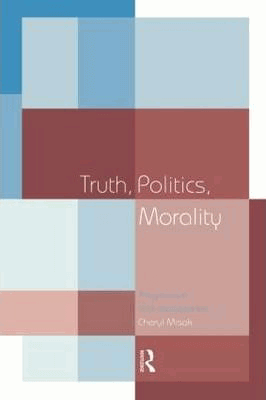
3:AM: You speculate that had Ramsey lived to complete his work or at least had his unfinished ‘On Truth’ been published in a timely manner than a pragmatist account of truth would have been better known earlier and would have competed with Dewey’s and complimented Lewis’s. Can you say something about this. Why is Ramsey so important for pragmatism?
CM: Ramsey was the pragmatist who really acted on the classical pragmatist idea that a belief is a habit or disposition to act. He saw that if a belief is disposition to act, then we can measure partial belief by seeing just how much someone is willing to bet on, or forgo for, the belief. And we evaluate beliefs in terms of whether they are good habits with which to meet the world.
At his death in 1930, at the age of 26, he was writing a book titled On Truth. The three partial drafts were only published in 1991, by Nicholas Rescher and Ulrich Majer. So, yes, I think that had that book been finished, or even had the world seen the drafts in a timely fashion, the course of pragmatism would have been changed, and changed for the better.
3:AM: As a take home, could you say what a good account of truth is for contemporary pragmatism, and which contemporary figures might you point to as representatives of that perspective?
CM :I’ve often put my favourite version of the pragmatist theory of truth in this nutshell: A true belief is the best belief we human beings could come to—a belief that would really account for the reasons and evidence were we to inquire as far as we fruitfully could. Here it is with the Ramseyan inflection: A belief is a habit with which we meet the world and true beliefs are the best habits we could have.
Simon Blackburn, Arthur Fine, Ian Hacking, John McDowell, Huw Price, and other excellent philosophers are, I think, are on board with this account of truth. But, as always when it comes to pragmatism, you have to go to the source and see whether they are willing to parade under a banner that has so frequently been associated with ‘truth is in the eye of the beholder’.
3:AM:And finally, are there five books other than your own you can recommend that will take us further into your philosophical world?
CM:
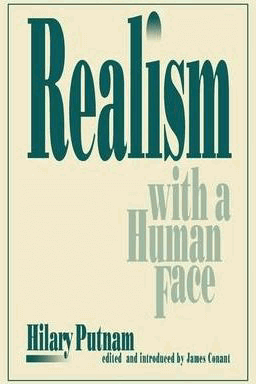
Hilary Putnam: Realism with a Human Face
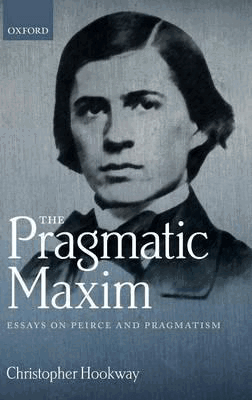
Chris Hookway: The Pragmatic Maxim
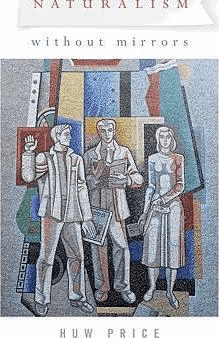
Huw Price: Naturalism without Mirrors
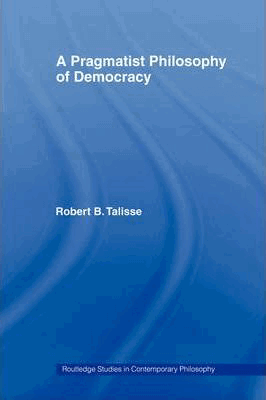
Robert Talisse: A Pragmatist Philosophy of Democracy
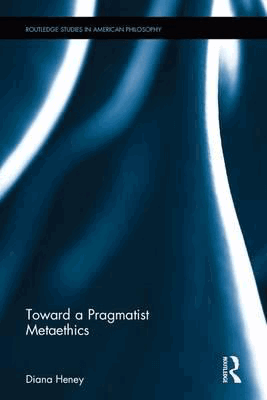
Diana Heney: Towards a Pragmatist Metaethics
If I weren’t restricted to five, I would add Elizabeth Anderson, Richard Bernstein and so on down the alphabet.
ABOUT THE INTERVIEWER
Richard Marshallis still biding his time.
Buy his book hereto keep him biding!